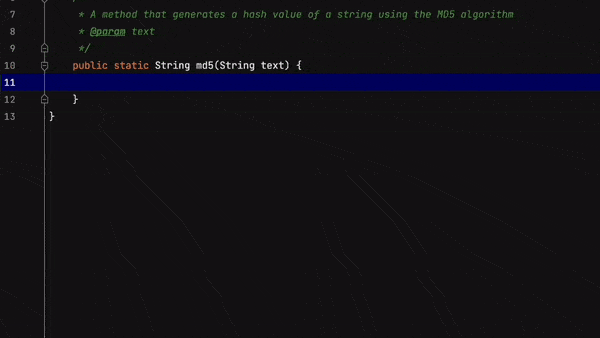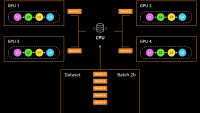The recent AWS re:Invent conference featured more than 2,300 sessions, and a raft of new ML and AI service launches.
The weeklong event, held in Las Vegas, also included a number of leadership sessions, including one focused on artificial intelligence and machine learning from Bratin Saha, AWS vice president of Machine Learning and AI Services, whose presentation was titled “Innovate with AI/ML to transform your business”.
Amazon SageMaker celebrates fifth birthday
Five years ago November, at its annual re:Invent conference, Amazon Web Services (AWS) announced the release of a new service called Amazon SageMaker, which enabled customers to quickly and easily build, train, and deploy machine learning models. Since then, SageMaker has become one of the fastest-growing services in AWS’s history. In a blog post, Bratin Saha, AWS vice president of ML and AI services, reflects on the past and future of AWS' machine learning tools and AI services.
Saha, who earned his PhD in computer science from Yale University twenty years ago, told the audience that when he first earned his degree machine learning was largely an academic pursuit, but over the past five years machine learning has “transitioned to become a rapidly growing mainstream endeavor.”
Further evidence of that transition, he said, is a recent survey on the adoption of AI showing that nearly 60% of companies now indicate they use AI in at least one function within their organizations. “That shows,” Saha said, “how machine learning has transitioned from being a niche activity to becoming integral to how companies do business.”
Saha added that in large part AWS has driven this transformation by developing the broadest and deepest set of machine learning services that are being used by more than 100,000 customers taking advantage of its three layers: infrastructure, Amazon SageMaker, and AI services.
Saha then outlined six key trends that are driving machine learning innovation:
- The exponential increase in the sophistication of ML models as exemplified by foundation models;
- The harnessing of a variety of multimodal data available to train ML models;
- ML industrialization, or the standardization of ML infrastructure and tools;
- ML-powered use cases, or the automation of use cases by embedding ML within them;
- Responsible AI, or making sure practitioners are using ML in appropriate ways; and
- ML democratization, or making sure practitioners have access to ML tools and skill-building opportunities.
Within his talk, Saha then provided deeper context and examples on each trend, and made several announcements, including that Amazon CodeWhisperer, an ML-powered coding assistant, is now available to all developers, Stability AI foundation models are now available on Amazon SageMaker, new geospatial machine learning capabilities for SageMaker, the next generation of SageMaker Notebooks that make it easy for customers to prepare their data, collaborate in real time, and quickly move from experimentation to production, new real-time call analytics capabilities for Amazon Transcribe that use speech-recognition models to understand customer sentiment, a new Amazon Textract Analyze Lending capability for the mortgage industry; a new transparency tool for AWS AI services, AWS AI Service Cards, that serves as “a single-stop-shop for customers’” responsible AI questions, and a new, public course on AI fairness and bias mitigation from AWS Machine Learning University.
Several customers participated in Saha’s presentation, including Emad Mostaque, CEO, Stability AI, who talked about how his company has built ML with generative capabilities; Aparna Ramani, vice president of AI, data and developer infrastructure engineering at Meta, who reviewed how Meta’s PyTorch engineers have been collaborating with AWS on key PyTorch projects, including recent PyTorch enhancments for AWS ML chips Inferentia and Trainium; Marco Görgmaier, general manager, BMW, who discussed geospatial ML; A.K. Karan, senior director, Baxter International, who focused on how AI is transforming manufacturing; Anand Victor, vice president, Alexa Secure AI Foundations, who discussed how SageMaker has helped Alexa ML engineers innovate faster; and Seung Hwan Kim, vice president and senior research fellow, LG AI Research. who talked about ML-generated fashion designs.
Other AI/ML sessions at AWS re:Invent included:
- Building AI-enriched applications with .NET on AWS
- Deploy ML models for inference at high performance & low cost
- Boost user engagement with Amazon Personalize
- Driving impact through cutting-edge research with the Amazon Research Awards
- Monitor and predict health data using AWS AI services
- Detect and resolve biases in artificial intelligence
- Automate insurance document processing with AI
- Improve uptime and predictive maintenance for industrial equipment
- Building more inclusive, responsible AI
- WaFd bank delivers enhanced self-service with AWS conversational AI
- A geographic perspective on responsible AI
- Accelerate your ML journey with Amazon SageMaker low-code tools
- Advances in machine learning that make Alexa sound human-like
- Automate your mortgage document processing with AWS AI/ML
- Make better decisions with no-code ML using SageMaker Canvas, featuring Samsung
- Learn how Black Knight is using AI to accelerate mortgage workflows
- Train ML models at scale with Amazon SageMaker
- Get the most out of your data with ML-powered search
- JPMorganChase’s real-time agent assist contact center productivity
- Build, manage, and scale ML development with a web-based visual interface
- Productionize ML workloads using Amazon SageMaker MLOps, featuring NatWest
- Minimizing the production impact of ML model updates with shadow testing
- Train and host foundation models with PyTorch on AWS
Find more on-demand content from AWS re:Invent 2022, including keynotes, leadership sessions, and breakout sessions.



















